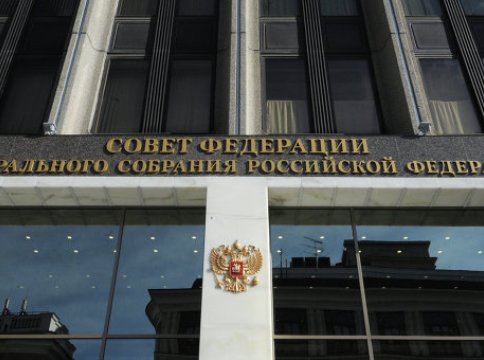Russia calls on international community to preserve Iranian nuclear deal

By Kamila Aliyeva
The international nuclear deal signed with Iran, a centerpiece of the global efforts to prevent nuclear activities, is jeopardized due to the U.S. President's intention to withdraw from the agreement.
Russia’s Federation Council unanimously adopted on October 25 an appeal to the parliaments of the United States, China, France, Germany, Britain and Europe to exert influence on the political leadership of their countries and prevent Washington from withdrawing from the Joint Comprehensive Plan of Action (JCPOA) on the Iranian nuclear program.
"Sharing the IAEA’s point of view, the members of the Russian Federation Council call on the members of the parliaments of China, France, Germany, the United Kingdom and the European Parliament to use their high influence on the political leadership of their states in order to maintain the historic agreement on the Iranian nuclear program,” the statement said, TASS reported.
The members also note with concern that at present the implementation of this international agreement was in jeopardy in connection with the new strategy on Iran, announced by U.S. President Donald Trump.
As part of this strategy, the United States can take unilateral actions in violation of the JCPOA (up to complete cessation of participation in it).
"Obviously, such a step will provoke Iran's response, throw the situation around the Iranian nuclear program decades ago, undermine the belief in the ability of the leading world powers to be responsible participants in international relations, irreparably damage the efforts to maintain the nuclear non-proliferation regime and have a very negative impact on the decision of the similar problems with the nuclear programs of other states," the document said.
Federation Council separately addresses members of the U.S. Congress "with an urgent offer to use all possible resources to prevent the emergence of this extremely dangerous situation."
They are convinced that there is no reason to curtail cooperation with Iran on the nuclear program.
"The assessments of the International Atomic Energy Agency (IAEA), authorized to monitor Iran's nuclear activities, confirm the country's fulfillment of its obligations under the JCPOA," the appeal said.
The statement of the Federation Council noted that the agreement on the Iranian nuclear program contributes to strengthening the nuclear non-proliferation regime throughout the world and can serve as an example for resolving other problems of international relations, in particular, the situation with North Korea.
The appeal will be sent to the parliaments of the United States, China, France, Germany, Great Britain and the European Parliament as well as to the Iranian parliament, Russian President and the IAEA.
The International Atomic Energy Agency (IAEA) has already eight times verified Iran's compliance with the nuclear deal.
On October 13, U.S. President Donald Trump, long been known as the main critic of the landmark deal, declared his view of the JCPOA, saying that he would not certify Iran’s compliance with the deal. At the same time he did not challenge the compliance of Iran at the international level. The move paves the way for Congress to put new restrictions on Iran.
However, it is believed that Trump would not recommend the Congress to re-impose sanctions in order to reach a compromise with many congressional leaders who stand for keeping the deal at least with some changes.
In case sanctions are applied, the United States would find itself in breach of its commitments. This means a unilateral withdrawal from the agreement, which will damage the reputation of the U.S. in the eyes of world community.
The Iran nuclear deal was negotiated in July 2015 between Iran, the five permanent members of the United Nations Security Council and Germany. By ratifying the plan, Iran agreed to scale down its nuclear activities in exchange for sanctions relief.
At the same time, the U.S. retains sanctions against Iran on the missile program, human rights and on suspicion that Tehran sponsors terrorism.
---
Kamila Aliyeva is AzerNews’ staff journalist, follow her on Twitter: @Kami_Aliyeva
Follow us on Twitter @AzerNewsAz
Here we are to serve you with news right now. It does not cost much, but worth your attention.
Choose to support open, independent, quality journalism and subscribe on a monthly basis.
By subscribing to our online newspaper, you can have full digital access to all news, analysis, and much more.
You can also follow AzerNEWS on Twitter @AzerNewsAz or Facebook @AzerNewsNewspaper
Thank you!
